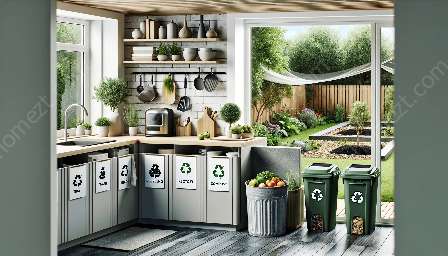Waste management is an essential aspect of maintaining clean and healthy environments. It involves the proper handling and disposal of different types of waste, including bio-degradable and non-biodegradable wastes. In this topic cluster, we will explore the significance of managing bio-degradable and non-biodegradable wastes, sustainable waste management techniques, and effective home cleansing methods.
Bio-Degradable Wastes: Definition and Importance
Bio-degradable wastes are organic materials that can be broken down and decomposed by natural processes. They include food scraps, yard waste, paper products, and certain types of plastics. It is crucial to effectively manage bio-degradable wastes because they can contribute to the production of methane gas if not disposed of properly. Methane is a potent greenhouse gas that can significantly impact climate change and air quality. Therefore, proper management of bio-degradable wastes is essential for mitigating environmental impacts.
Managing Bio-Degradable Wastes
In homes, bio-degradable wastes can be managed through composting. Composting is a natural process that converts organic waste into nutrient-rich compost, which can be used to enrich soil and support plant growth. By implementing composting practices, individuals can reduce the amount of bio-degradable waste sent to landfills and contribute to sustainable waste management.
Non-Biodegradable Wastes: Challenges and Solutions
Non-biodegradable wastes are materials that do not break down naturally and can persist in the environment for long periods. Examples include plastics, metals, glass, and certain chemicals. Improper disposal of non-biodegradable wastes can lead to pollution, habitat destruction, and harm to wildlife. Effective management of non-biodegradable wastes is crucial for minimizing environmental harm and promoting sustainable living.
Proper Waste Management Techniques
Waste management techniques such as recycling, reusing, and reducing can help minimize the impact of non-biodegradable wastes. Recycling allows materials like plastics, glass, and metals to be processed and used in the production of new products, reducing the demand for virgin resources and energy. Reusing items, such as containers and shopping bags, can also significantly reduce the amount of non-biodegradable wastes generated. Additionally, reducing overall consumption and opting for eco-friendly products can contribute to waste reduction and sustainable living.
Home Cleansing Techniques for Waste Management
Proper home cleansing techniques play a vital role in waste management. Establishing separate containers for bio-degradable and non-biodegradable wastes can facilitate proper disposal and recycling. Regular cleaning and maintenance of waste bins and recycling containers can help prevent odors and the accumulation of harmful bacteria, promoting a hygienic living environment.
Conclusion
Managing bio-degradable and non-biodegradable wastes is integral to promoting environmental sustainability and safeguarding public health. By understanding the characteristics of different types of wastes and implementing proper waste management techniques, individuals can contribute to a cleaner and healthier environment. It is essential to engage in responsible waste disposal practices and embrace sustainable living habits for the well-being of current and future generations.


